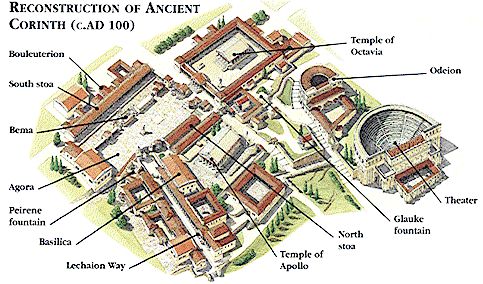Keener on Acts of the Apostles
by larryhurtado
Of the making of commentaries on biblical writings, there is much, increasingly so (it seems) in recent decades, often in various series, each with its own intended focus, readership, and approach. One of the most prolific writers of commentaries is Craig Keener, with hefty tomes on the Gospel of Matthew (1999), the Gospel of John (2 vols, 2003), and now the first of a 4-volume commentary on Acts of the Apostles: Acts: An Exegetical Commentary, Volume 1, Introduction and 1:1–2:47 (Baker Academic 2012).
Acts has received a good deal of attention from scholars, including earlier multi-volume projects. The most well-known of the latter is certainly the 5-volume work edited by F. J. Foakes Jackson and Kirsopp Lake, The Beginnings of Christianity, Part 1: The Acts of the Apostles (1920-1933). More recently, there was the 6-volume project overseen by Bruce Winter, The Book of Acts in its First Century Setting (Eerdmans, 1993-1998, the 6th volume of which, however, appeared on its own and with a different title than originally projected: Witness to the Gospel: The Theology of Acts, eds. I. H. Marshall & David Peterson).
But, to my knowledge, Keener’s 4-volume project (running well in excess of 2.5 million words) is by far the largest single-author work on Acts to date. He is justifiably grateful to the publisher (Baker Academic) for accepting this massive work for publication.
Keener’s strong suit has always been his impressive acquaintance with the literary environment of the New Testament. He is able to provide copious citations of texts (especially “pagan” texts) of the time, offering readers many opportunities to ponder possible relevance for appreciating a given passage in the NT. He is also remarkably thorough in citing other scholars.
This initial volume (running nearly 1,100 pages) comprises an extensive Introduction in which, after giving “considerations for reading this commentary” (pp. 3-43), Keener addresses at length all the issues currently in play about Acts: “Writing and Publishing Acts”, “Proposed Genres”, Acts as a Work of Ancient Historiography”, Acts and Paul”, Speeches in Acts”, Miracle-stories in Acts, Date, Authorship, intended readership, purpose, Acts and “Israel’s Story”, Lukan emphases, “Unity and Structure of Luke-Acts”, geography, and “Luke’s Perspectives on Women and Gender”. The matters take up the first 640 pages.
The remainder of this volume (pp. 641-1038) is a detailed analysis of Acts 1:1–2:47. In this material as well, Keener conducts a dialogue with a rich assortment of other scholars (in the footnotes), as well as providing exegetical comments on the text of Acts. It will take more time than I’ve yet been able to devote to it to explore adequately the contents and to judge the merits of Keener’s massive project. But anyone concerned with Acts is best advised to take account of this extensive study from a widely read and dedicated scholar.













